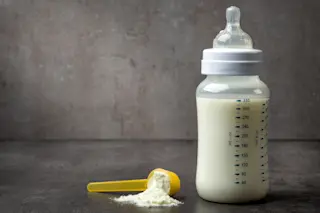Many women accept menstrual cramps as a fact of life. But researchers say that some women have it worse than others and that it may be related to what they were fed as infants.
Female babies fed soy formula are prone to more painful periods during their young adult years, according to a new study published this week from the National Institutes of Health (NIH). The research, published in Human Reproduction, found that soy feeding was associated with a 50 percent increased risk of moderate and severe menstrual pain. Women who were soy fed also were 40 percent more likely to use hormonal contraception to ease pain and discomfort.
This is the first study since 2001 to look at the long-term impacts of soy exposure during infancy and how it affects menses pain in adulthood. Kristen Upson, an epidemiologist with NIH, said it’s an important area of study because menstrual ...














